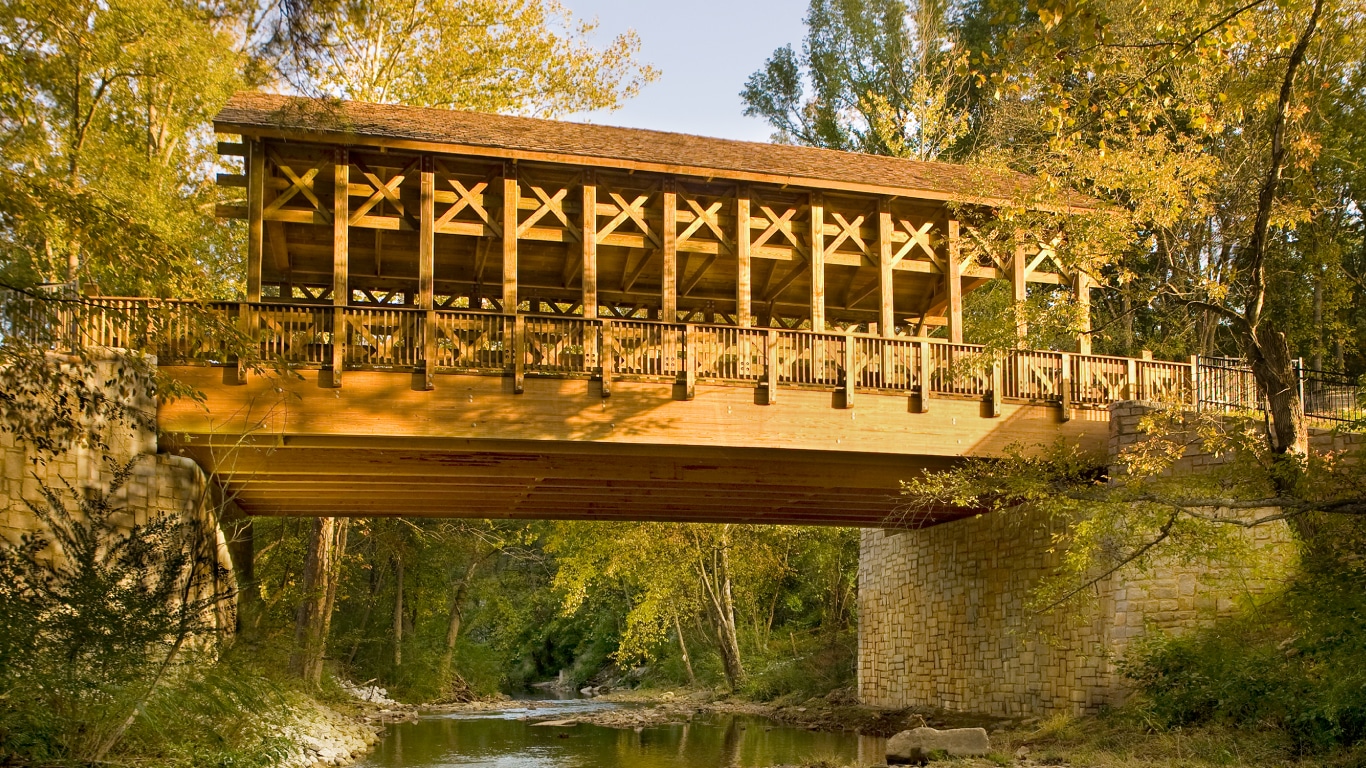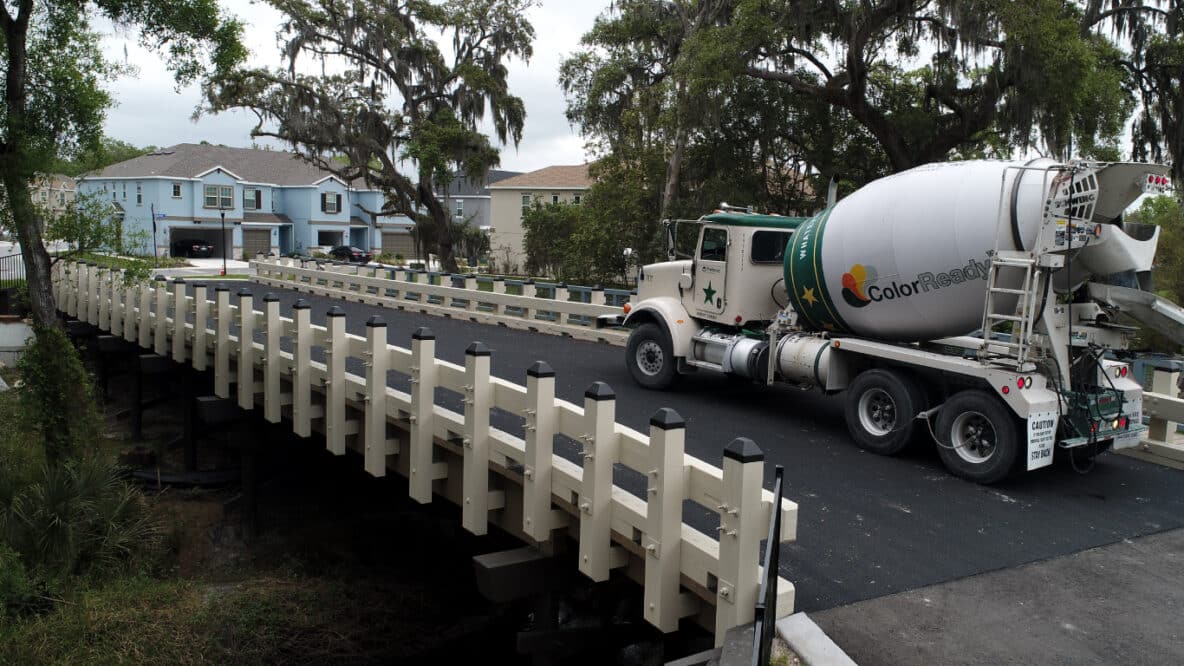the strength and durability of timber and steel bridges
Selecting the right bridge structure is a complex decision, and understanding how strong and durable a timber bridge is compared to a steel counterpart is one of the most critical factors. We're here to dispel any myths that timber bridges aren't as strong and durable as a steel bridge.
York Bridge Concepts, a leading authority in premium timber-built bridges, excels in providing robust and enduring solutions.
In this article, we'll explore the strength and durability of timber vs. steel bridge structures and demonstrate why York Bridge Concepts' premium timber-built bridge is a resilient choice.
The choice between timber and steel for bridge construction is a critical decision that hinges on a multitude of factors, with strength and durability being paramount considerations.
These two essential qualities are pivotal in determining the long-term performance and safety of a bridge.
Timber and steel each offer unique advantages and characteristics that can significantly influence their suitability for different projects. In this comparison, we delve into the strengths and durability of timber-built bridges versus their steel-built counterparts, shedding light on the attributes that set them apart and help guide informed decisions in infrastructure development.
Whether it's the natural resilience of timber or the industrial strength of steel, understanding the trade-offs in these aspects is key to creating safe and reliable bridges that stand the test of time.
Timber Has A Natural Inherit Strength
Timber's natural strength is a distinctive quality that sets it apart when considering bridge construction. Timber possesses inherent structural integrity, which, when properly engineered and maintained, can rival the strength of steel.
Timber's strength-to-weight ratio makes it a reliable choice for supporting heavy loads, while its natural flexibility allows it to absorb and distribute stress effectively.
Modern glulam construction material is pound-for-pound stronger than steel
Moreover, timber exhibits a unique ability to withstand dynamic forces like wind and seismic events, making it a resilient material for bridge construction.
This natural strength, combined with modern construction techniques and treatments, positions timber as a formidable and sustainable alternative to steel in the world of bridge engineering, offering both strength and environmental benefits.
Timber Shines As A Sustainable Alternative To Steel Bridge Engineering
Timber's natural strength is a remarkable attribute that distinguishes it as a compelling choice in bridge engineering.
Timber possesses inherent structural integrity, capable of supporting substantial loads while maintaining flexibility to adapt to varying stresses. The fibers in timber provide natural resistance to bending and shear forces, making it a strong and reliable construction material.
Additionally, timber's ability to absorb and distribute dynamic forces, such as those caused by wind and seismic activity, further underscores how strong and durable a timber bridge is.
Modern engineering techniques and treatments enhance timber's strength and durability, making it a sustainable and robust option for bridge construction.
In the world of bridge engineering, timber's natural strength not only competes with steel but also offers a greener alternative, emphasizing its significance in balancing strength and sustainability in infrastructure projects.
York Bridge Concepts boasts a team of experienced engineers who understand the complexities of timber bridge design. Our expertise ensures that every timber bridge we build is over-engineered to meet specific load capacities and design criteria. This structural engineering expertise results in bridges that are not only strong but also safe and durable.
Interested in collaborating on your next project? Request A Quote

Building Bridges That Last: Timber's Corrosion-Resistant Benefits
One of the challenges with steel bridges is their susceptibility to corrosion, which can undermine structural integrity.
Timber-built bridges, in contrast, are naturally resistant to corrosion. York Bridge Concepts' choice of timber materials reflects their commitment to durability.
An article published by the Federal Highway Administration (FHWA) emphasizes that timber bridges require less maintenance due to this resistance, contributing to their long-term durability.
Timber's natural resistance to corrosion and deterioration is a well-documented and compelling advantage when compared to steel in bridge construction. This resistance is rooted in the inherent properties of wood, as well as the treatments and engineering techniques employed, creating a strong & durable timber bridge.
A study published in the Mississippi State University of Forest & Wildlife Research Center highlights how timber's natural composition, with its dense cell structure and the presence of extractives, provides a protective barrier against corrosion.
The Forest Products Laboratory, a research branch of the USDA, further corroborates this in their research on timber's durability and resistance to decay.
In addition to these inherent qualities, timber can be treated with preservatives to enhance its resistance to deterioration. These treatment methods have been extensively examined and confirmed in research by the International Research Group on Wood Protection (IRGWP), emphasizing the efficacy of timber as a corrosion-resistant material for bridges.
This natural resistance and treatment, combined with proper maintenance, positions timber-built bridges as a durable and sustainable choice that outshines steel when it comes to combating corrosion and deterioration.
Quality Construction & Proper Maintenance Ensure Your Bridge Will Last For Generations
Quality construction practices, combined with proactive maintenance, ensure that your timber bridge remains strong and durable throughout its lifespan. Michael A. Ritter, Structural Engineer United States Department of Agriculture Forest Service states: "Over the past four decades, properly designed and preservative-treated timber bridges have demonstrated good performance with long service lives, given proper maintenance. Over the same period, timber has continued to be economically competitive with other bridge materials, both on a first-cost basis and a life-cycle basis."
York Bridge Concepts' commitment to quality craftsmanship extends beyond construction to ongoing inspection and maintenance programs.
YBC's commitment to meticulous and sustainable construction techniques ensures a bridge that not only meets the highest safety standards but also harmonizes with its environment.
The use of timber, when properly treated and maintained, can rival the strength and durability of steel, and York Bridge Concepts' proactive maintenance programs further extend the life of their strong and durable timber bridges while minimizing environmental disruption.
In contrast, steel bridges require more intensive and resource-heavy maintenance to combat corrosion and degradation, leading to higher operational costs and environmental impacts.
York Bridge Concepts' emphasis on quality construction and sustainable maintenance practices makes their bridges a safer, cost-effective, and eco-friendly choice, emphasizing the paramount importance of construction and maintenance for the long-term success of any bridge project.
Timber Offers More Flexibility & Customization In Design Compared To Steel
Timber bridges not only excel in handling extreme loads compared to steel-built counterparts but also offer a unique advantage in terms of adaptability and customization.
The inherent structural integrity of timber, when combined with precision engineering and quality materials, enables these bridges to confidently support heavy loads. Timber's strength-to-weight ratio, flexibility, and durability make it a reliable choice for handling extreme loads.
To put it in perspective: There are about 100,000 railroad bridges in the U.S. and approximately 30,000 of them are constructed from timber. More than half of these timber bridges were built before 1920 and are still in service today.
Furthermore, timber's versatility allows for intricate design customization and seamless integration into diverse landscapes, making these bridges ideal for projects with specific aesthetic and functional requirements.
The adaptability and natural aesthetics of a strong & durable timber bridge, combined with its robust load-bearing capabilities, offer a compelling combination that challenges the conventional preference for steel in bridge construction.
Timber bridges not only meet the challenges of extreme loads but also provide a customizable and adaptable solution that suits a wide range of project needs.
A Strong & Durable Timber Bridge Is An Excellent Choice
In the Timber vs. Steel Bridge Structures comparison, the strength and durability of timber-built bridges are exceptional, and York Bridge Concepts excels in delivering these advantages.
Timber's natural strength, coupled with expert engineering and a commitment to quality construction and maintenance, ensures that your premium timber-built bridge will stand the test of time.
By choosing York Bridge Concepts, you're not just investing in a bridge; you're investing in strength, durability, and the peace of mind that comes with a bridge that remains resilient through the years.

